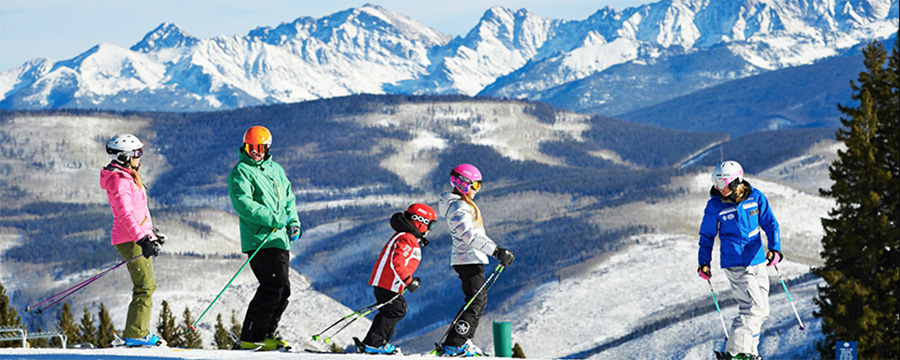By Eric Smith
An undeniable strength of Vail Resorts Inc.’s massive North American footprint is the ability to hedge weather-related risks: When one region gets skunked on snow, another is usually blessed with winter storms.
Late start to the season for Midwest resorts? That’s OK because Utah’s lifts are spinning early. Dry in the Northeast? Well, it’s dumping in the Rockies.
Vail’s robust snowmaking also helps the company offset pockets of dry weather, and the wildly popular Epic Pass allows skiers and riders to chase pow, usually guaranteeing healthy lift lines somewhere in its network of 34 North American resorts.
Unfortunately for the Broomfield, CO-based ski resort owner and operator, the effects of the coronavirus, or COVID-19, aren’t limited to one area of the country. While the outbreak is still slow in the U.S. relative to China, where it started, and relative to Italy, where it spread rapidly in recent weeks, the threat of coronavirus is causing many to rethink their travel plans.
And companies like Vail are feeling the effects.
Sure enough, when the company reported fiscal second-quarter earnings on Monday, the coronavirus took center stage. It dominated Vail’s financial results amid a decent quarter considering it was up against a strong comp in 2019.
Vail second-quarter earnings per share of $5.04 missed Wall Street’s estimates by 41 cents, and though its revenue of $924.6 million missed consensus targets by $28.2 million, it was up 8.8 percent year-over-year.
But “due to the uncertain impact of coronavirus on results for the remainder of fiscal 2020,” Vail was forced to withdraw its guidance for fiscal 2020.
Vail will provide an update on March 18, but the early indications are that the coronavirus impact will continue taking a toll on Vail’s visitation as wary travelers opt to stay home instead of taking ski vacations.
“In the week ended March 8, 2020, the company saw a marked negative change in performance from the prior week, with destination skier visits modestly below expectations,” the company said. “The company expects this trend to continue and potentially worsen in the upcoming weeks.”
The company said of the coming financial hit even without the impact of coronavirus: “Based on results through March 1, 2020, and indicators for the remainder of the year as of that date, and excluding any identified impact from coronavirus, the company estimated that Resort Reported EBITDA for fiscal 2020 was expected to be approximately $20 million below the midpoint of the guidance range previously issued on January 17, 2020.”
…
Monday’s news rattled Vail’s stock. Shares of Vail (MTN) dropped $14.58, or 7.4 percent, to $182 at market close before dipping further Tuesday morning. Vail Resorts also deferred its decision on a stock dividend increase until June.
On the earnings call with analysts, Vail Resorts CEO Rob Katz shed further light on how the coronavirus is impacting the company, but he also added one important takeaway—the company isn’t closing its resorts early. Not only is the ski season almost over, but Vail is heading into a busy period that includes spring break and Easter.
“At the moment, we are not at all changing any of our operating schedules and plan to keep all of our resorts open,” Katz said. “They’re all open and operating normally. We do not expect any change whatsoever in the experience we want to provide to our guests, and we’ll be doing that.”
But, Katz cautioned, that could change at moment’s notice, especially in light of the “previous week’s turbulence” during which the coronavirus started directly impacting some visitation declines.
“Some strength and some pretty positive indicators that we were seeing for March—all of a sudden a lot of those trends started to change,” Katz said. “As the week went on, [the situation] continued to worsen a bit.”
…
The coronavirus directly affected one of Vail’s own resorts last month after a traveler who skied at Vail and Keystone resorts and stayed at lodging in Keystone tested positive for the coronavirus. Other Colorado ski areas, including Aspen, have reported potential cases of the virus.
Katz said the company is remaining vigilant with the rapidly changing situation, adding this to his coronavirus remarks: “We remain focused on the health and safety of our guests and employees as we address the potential impacts of the coronavirus,” he said. “We are in contact with and following all recommendations and precautions from state and local health officials.”
As the outbreak potentially disrupts near-term lodging reservations and skier visits for Vail, there’s also a long-term impact, Katz said. With the 2020/21 Epic Pass now on sale, could fears over the coronavirus extend into consumers waiting to purchase next season’s pass—or perhaps not buy one at all?
“I’m sure for some buyers, there’ll be issues with making any purchases,” Katz said. “I think there will be a short-term impact from coronavirus, and then a longer-term piece. I’m not quite sure exactly what happens in the short-term, but in the longer term, I feel the company is perfectly positioned for that, even if there are challenges.”
In other words, look for Vail’s geographic advantages to again emerge as a critical asset for the company if coronavirus concerns linger into the summer and beyond.
…
During Monday’s nearly one-hour earnings call, Katz touched on topics other than coronavirus, including mixed snowfall across Vail’s resorts, the company’s PR hit over exceptionally long lift lines at Vail a few weeks ago and the prospects of M&A in the coming offseason.
On the inconsistent snowfall across Vail’s ski areas, Katz said early-season challenges in the company’s Pacific Northwest resorts of Whistler Blackcomb and Stevens Pass resulted “in very poor results through the early season and critical holiday period.”
“Visitation at those resorts continued to be challenging and below our expectations in January, with Whistler Blackcomb experiencing a weaker than expected recovery in North American and international destination visitation,” he said. “In total, visitation across our Pacific Northwest resorts was down 14 percent compared to the prior year for the second quarter.”
But, he added, “after a challenging start in the early season, destination guest visitation at our Western U.S. resorts improved significantly during the holiday period and was in line with our expectations. The improvement continued through January though Colorado was modestly below our expectations for the post-holiday period, partially offset by strong performance at our Park City resort. Finally, our Northeast resorts are off to a great start to the season, supported by the continued benefit from our expanded Northeast network, which has been partially offset by challenging weather variability across the Midwest resorts.”
…
On the outrageous lift lines at Vail that caused an uproar on social media and also sparked an apology from the company’s COO, Katz said it was a one-off situation, the result of an intense snow cycle that has happened only a few times over the last decade. The biggest takeaway, he said, was the need for improved guest communication.
“I think we have a responsibility to be out front with our guests,” he said. “One of the things we’re currently talking about is how do we have a singular effort that makes sure that every guest knows exactly what to expect, when and where. And that’s something that we’re going to absolutely be continuing to improve upon, and we’ll make sure we’ll be more dialed in for next year.”
…
On M&A, and the company’s appetite for adding more resorts after the massive expansion with the purchase of Peak Resorts Inc. last summer, Katz said: “There are a handful of opportunities we would always pursue,” adding that the company remains focused on pursuing deals in Japan and Europe.
“Every quarter, we assess [M&A] with the board,” he said. “We’ll be doing that again this quarter, but I can’t comment beyond that. We remain fully committed to investing in our resorts for the long-term and strategic opportunities when they make sense, and we’re going to continue to be aggressive on that front, but also disciplined and thoughtful on value. We’re going to look for those unique opportunities and absolutely still pursue them. We’ll be thoughtful about M&A as to where it can help in that strategy, just like we always have been.”
Photo courtesy Vail Resorts
















